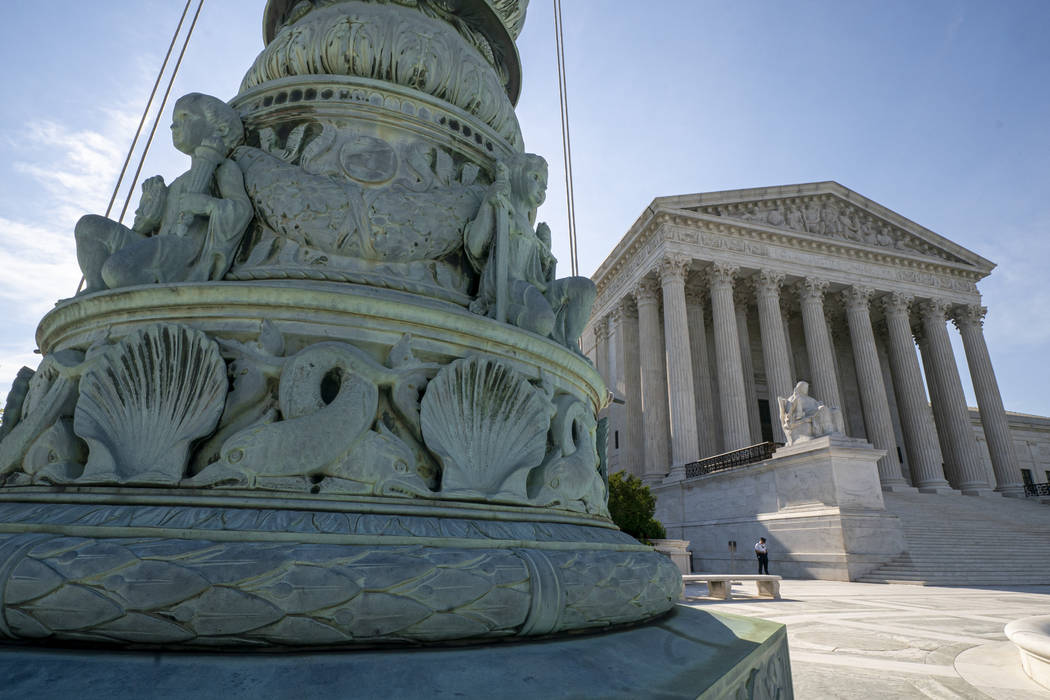Supreme Court rejects rationale for census citizenship question
WASHINGTON — The U.S. Supreme Court ruled against the Trump administration’s attempts to ask respondents if they are U.S. citizens in the next census.
The ruling sent the case to a lower court just ahead of a Department of Commerce July 1 deadline to print the questionnaire and forms for the 2020 census — making it unlikely that the question will be included in the nation’s headcount.
However, President Donald Trump tweeted that it seemed “totally ridiculous” that the government “cannot ask a basic question of citizenship” — as he called for a delay in the 2020 census.
Seems totally ridiculous that our government, and indeed Country, cannot ask a basic question of Citizenship in a very expensive, detailed and important Census, in this case for 2020. I have asked the lawyers if they can delay the Census, no matter how long, until the.....
— Donald J. Trump (@realDonaldTrump) June 27, 2019
.....United States Supreme Court is given additional information from which it can make a final and decisive decision on this very critical matter. Can anyone really believe that as a great Country, we are not able the ask whether or not someone is a Citizen. Only in America!
— Donald J. Trump (@realDonaldTrump) June 27, 2019
The 5-4 decision left open the ultimate issue of whether census takers can ask a citizenship question, as the court found fault with the government’s “rationale” for including the question, which it said appeared “contrived.”
The opinion written by Chief Justice John Roberts all but called Commerce Secretary Wilbur Ross a liar. “Several points, taken together, reveal a significant mismatch between the Secretary’s decision and the rationale he provided,” Roberts wrote for the majority.
Only if government agencies “disclose the basis” for their actions, the court determined, can the courts pursue “meaningful judicial review.”
“Today’s decision reaffirms that basic principle that agencies have to be truthful with the public for the decisions that they take,” said Dale Ho, director of the American Civil Liberties Union’s Voting Rights Project.
The U.S. Constitution requires a decennial census, which is used to allocate federal funds and to draw congressional districts. Under federal law the census must begin on April 1, 2020.
Every census between 1850 and 2000 has asked some respondents about their citizenship or place of birth.
Australia, Canada, France, Indonesia, Ireland, Germany, Mexico, Spain and the United Kingdom ask about citizenship in their censuses.
During the last census in 2010, the citizenship question was moved to a more select survey of a small sample of households.
In March 2018, Ross announced he had decided to reinstate the citizenship question in the 2020 census, ostensibly to help enforcement of the Voting Rights Act, which protects minority voters’ access to the ballot box.
Sen. Lindsey Graham, R-S.C., defended the move when he told Fox News, “Sanctuary cities are created when you’re asking people to come to your city. I don’t think you should get a benefit from the federal government for doing that. And that’s what happens when you count illegal immigrants.”
Opponents of the citizenship question, however, argued in the court that a return of the citizenship question would lead to undercounts in states with a large undocumented population – which would mean fewer federal resources and less congressional representation.
Nevada, which has the highest percentage of undocumented immigrants – 7.1 percent of the population – of any state in the country, stands to lose nearly $170 million in federal funds for health care and child welfare programs over the next decade if 1 percent of state residents don’t participate in the 2020 census.
After the Supreme Court released its ruling, two veteran Nevada Democrats, Sen. Catherine Cortez-Masto and Rep. Dina Titus, called on Ross to resign.
“Today’s decision is a clear sign that the Supreme Court recognizes this administration tried to lie its way through our judicial system in order to add a political question on citizenship to the 2020 Census,” Cortez-Masto said in a statement.
What will happen next is unclear. The Census Bureau said in a brief statement only that the decision is “currently being reviewed.” But the ACLU’s Ho said “there really, really is not time” for the administration to revisit adding the question.
“Given how many times they represented that they need to start printing the forms next week, I think it would be the height of hypocrisy to try to get more time now,” Ho said.
Roberts wrote that Ross “was determined to reinstate a citizenship question from the time he entered office; instructed his staff to make it happen; waited while Commerce officials explored whether another agency would request census-based citizenship data; subsequently contacted the Attorney General himself to ask if DOJ would make the request; and adopted the Voting Rights Act rationale late in the process.”
The Libertarian-leaning Cato Institute’s Walter Olson sees a “signature style” Roberts ruling that preserves future administrations’ ability to ask a citizenship question while killing a hot-button question by seizing “on process irregularities in order to make it look like too much of a culture-war win for one side or another.”
Contact Debra J. Saunders at dsaunders@reviewjournal.com or at 202-662-7391. Follow @DebraJSaunders on Twitter.















